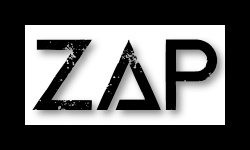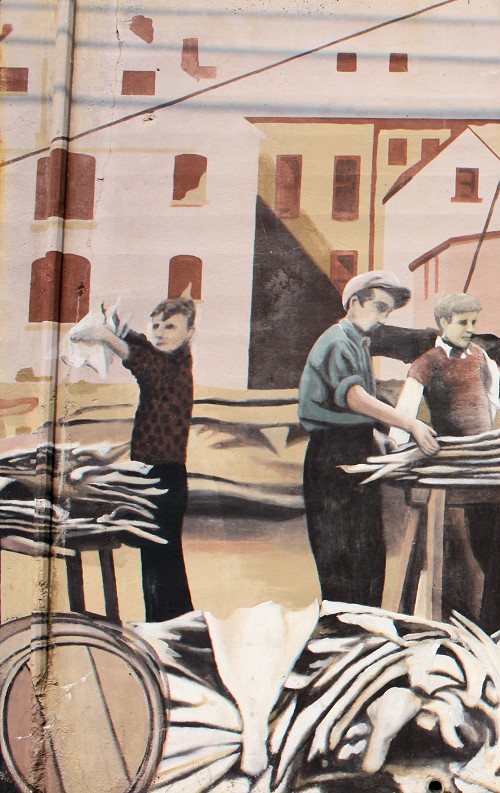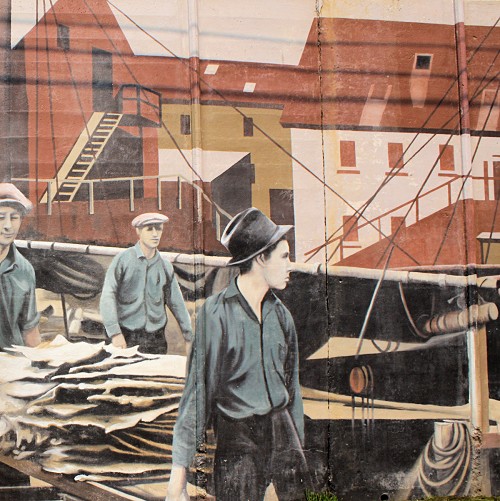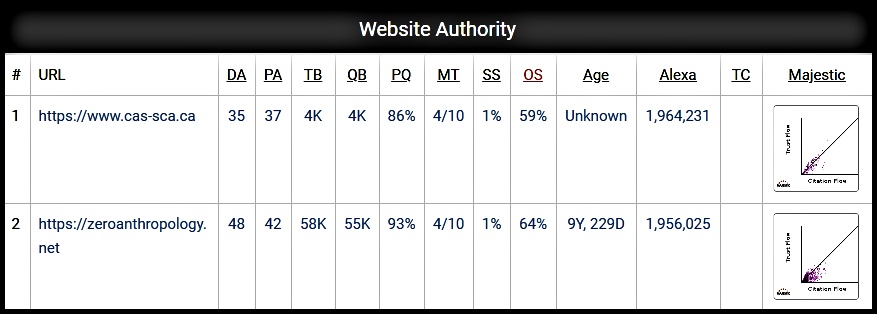|
The Zero Anthropology Project
Webfolio for Maximilian C. Forte 
HOME |
SITE MAP
|
ABOUT
| RESEARCH |
MEDIA |
ARTICLES |
REVIEWS |
COURSES |
ZAP SITES |
CONTACT



Writing for Zero Anthropology
Writing for the
Zero Anthropology Magazine—the
primary interface through which most people will
encounter the Zero Anthropology Project—has
probably been the high point of my career,
greatly aiding my own intellectual development
as I discovered that one of the best methods of
learning, is writing. Unexpectedly, it also
created opportunities for developing contacts
and connections with other writers, researchers,
journalists, and activists over the years.
However, what remained central was the writing,
and what went through it: the exploration of
knowledge, the articulation of ideas, and the
production of finished presentations.
Formulating an idea, and then trying to
articulate it in writing, only to then stumble,
grow doubtful, and realize that there were
questions I needed to ask (and answer) first, is
the great advantage of writing-as-learning.
Writing for non-academic audiences, but without
pandering to an imagined lowest common
denominator, was an exciting challenge. Now it
is the way I write all the time, in every
context. I cannot imagine going back to the
system where one is so fearful of saying
anything decisive and meaningful, lest it meet
with the disapproval of academics churned out by
the criticism-generating machines that
universities have become. No wonder that
academic writing has degenerated into opaque,
jargon-laden prose that masks some very mundane
statements behind artificially complex,
ambiguous and overwrought writing. Fear of
criticism leads some to write about even
unremarkable things in a dense and obscure
fashion that was designed as a shield against
the adversarial forensic analysis of minutiae in
which peer reviewers specialize. Rather than be
caught saying anything “wrong,” better to say an
awful lot of nothing.
 In writing for the
Zero Anthropology Magazine I
discovered that there is nothing I like more
than crafting something and giving it shape, and
then applying finishing touches—only to maybe
undo it all the next day, or redo it. Looking
back on the years I have written for
Zero Anthropology, I am almost
overwhelmed by how much ground was covered: the
number of questions; the mountain of ideas,
arguments, and insights; the wide range of
sources read and summarized; the numerous events
and developments that were analyzed and combined
into a larger explanatory framework; the
diversity of topics, each forming chapters of a
bigger “book”. In fact, readers might find that
in terms of the overall word count, and the
subjects explored, there are several books
hidden within the
Zero Anthropology Magazine. In writing for the
Zero Anthropology Magazine I
discovered that there is nothing I like more
than crafting something and giving it shape, and
then applying finishing touches—only to maybe
undo it all the next day, or redo it. Looking
back on the years I have written for
Zero Anthropology, I am almost
overwhelmed by how much ground was covered: the
number of questions; the mountain of ideas,
arguments, and insights; the wide range of
sources read and summarized; the numerous events
and developments that were analyzed and combined
into a larger explanatory framework; the
diversity of topics, each forming chapters of a
bigger “book”. In fact, readers might find that
in terms of the overall word count, and the
subjects explored, there are several books
hidden within the
Zero Anthropology Magazine.
Since
Zero Anthropology always had a
defined mission and program of work (even if it
changed in some ways with time), the project did
not lack a reason for being. At times the
pressure of other commitments threatened to
submerge the project, but never succeeded in
doing so. There was never any shortage of things
to say, and things to talk about—only a shortage
of time or energy.
Had I never started the
Zero Anthropology Magazine, I can
only imagine that my life would have been far
more boring, and that my teaching and research
career would not have taken so many different
and interesting lines. In fact, as many as half
of the courses I now teach, and even the
contents of some lectures, owe their original
inspiration to work that was developed for the
magazine. Books I have written were first
“seeded” on the site of the magazine. There are
people I now know because I first met them via
the magazine.
Finally, what is perhaps the greatest lesson of
Zero Anthropology for me is a
simple one of self-reliance: in the face of
whatever you find dissatisfying, you can always
choose the unconventional path of doing for
yourself, and creating your own space, such
that you depend less and less on the “goodwill”
of those who are prepared to offer very little,
or whose “gifts” and “favours” come with
numerous conditions attached, not to mention
demands for compromise. This same autonomist
approach is the very basis of an
anti-imperialist ethic.
History and Statistics
Here are some of facts about the
Zero Anthropology Magazine: it
first came into being in October of 2007, when
it was titled “Open Anthropology”. That name was
then changed to Zero Anthropology in
2009, after a conflict with another site that
appropriated its name and sought to take over
even more. The site began by encompassing what I
deemed to be some of the key articles of a
previous
newsletter/blog that I started in
2000, known as
The CAC Review (CAC standing for
the Caribbean Amerindian Centrelink, which I
started in 1998, and which
remains online, in stasis). It was
meant to be a departure—more a growing out of,
or branching off from my years immersed
in the study of Indigenous Peoples of the
Caribbean. The wars in Iraq and Afghanistan were
raging; a financial collapse was occurring; and
universities were being transformed into
something utterly alien to me. Keeping my nose
down in my specialist research was not how I
imagined a life-long career of learning. It
would have been a testament that I had literally
learned nothing of any substance from the
colonial and contemporary histories of
indigenous struggles in the Caribbean, if I had
“missed the point” that was staring right at me
the whole time: imperialism, and the struggles
against it. In 1492 European empire became not
only transcontinental, but also transoceanic,
and in that milieu the Caribs stand as the
original anti-imperialists of the modern
world-system.
The magazine has now published (at the time of
writing this in 2019), over 1,500 essays. The
site has been viewed, directly, more than 1.5
million times. Thousands of persons receive
articles by email, and at least a thousand more
read the articles through various RSS feed
readers. It’s in fact impossible for me to know
exactly how many readers any one article
receives, especially as some readers circulate
articles privately by email. The magazine also
spawned various offshoots: a book publishing
arm, a document library, and video productions
(see the various sites
here).
Recognition?
 Recognition of
Zero Anthropology has been
informal, casual, and unusual—but not openly
“institutional”. Thus, for all its work, it has
not been granted any awards, or even received
recognition at the level of honourable mentions
from any professional association. Indeed, the
Canadian Anthropology Society (CASCA) is more
likely to follow American bloggers in Twitter,
people who have never paid dues to the society,
never participated in its conferences, and never
did any service for CASCA. Recognition of
Zero Anthropology has been
informal, casual, and unusual—but not openly
“institutional”. Thus, for all its work, it has
not been granted any awards, or even received
recognition at the level of honourable mentions
from any professional association. Indeed, the
Canadian Anthropology Society (CASCA) is more
likely to follow American bloggers in Twitter,
people who have never paid dues to the society,
never participated in its conferences, and never
did any service for CASCA.
However,
certain other facts are also worth mentioning
here.
Zero Anthropology Magazine, and
specific articles within it, have been formally
cited in over a dozen books, and a similar
number of journal articles. There are several
encyclopaedia articles that discuss
Zero Anthropology. (Citations are
available if requested.) Major
libraries at leading universities list the site
as a key resource in anthropology. At least
three dozen different courses, in universities
around the world, use
Zero Anthropology articles as
assigned readings in their syllabi. Readers of
Zero Anthropology Magazine can
now be found in nearly every single country on
this planet. Some of its articles have either
been reprinted or quoted in newspaper articles,
and many of the articles have been translated
into other languages. Also, given that it has
been consistently ranked among the top sites of
its kind internationally, in the English
language, the
Zero Anthropology Magazine is
most likely Canada’s most prominent anthropology
website. In fact, the
Zero Anthropology Magazine has
significantly higher global rankings across the
board even when compared to the website of the
Canadian Anthropology Society itself:

This chart shows
that Zero Anthropology has a higher domain
authority, a higher page authority, a great number
of links to it from other sites, a higher off-page
SEO score, and a higher ranking in Alexa than CASCA.
Data was obtained by using
Website SEO Checker in 2019.
There are also “unseen effects” of the presence
of
Zero Anthropology. Encouraged by
the methods, scope, and approach developed on
the site, some graduate students in anthropology
have sought to expand the horizons of their own
work, or have questioned the purpose and nature
of their research. Like it or not—and for many
established academics it is usually “not”—Zero
Anthropology has redefined the range
of acceptable investigations in the field, while
questioning the hegemonic agenda of the centres
of academic power and academic capital.
Zero Anthropology’s success in this regard,
where its “unseen effects” are concerned, is
owing to its ability to take a rather old, even
conservative principle, and deploy it in a
radical fashion. The principle is that
anthropology is in its essence a theoretical and
philosophical undertaking guided by large and
difficult questions about the human condition,
about war and peace, the ability to coexist, and
to live fulfilling and meaningful lives under
conditions of our own choosing. It is not an
exercise that is about methods and places. For
ethnography, no subject is too small. For
anthropology, no subject is too large. Since
imperialism is historically one of the
largest-scale processes to affect humanity the
world over, an anthropology that does not
consider what happens to the human condition
under empire, is something that falls short of
anthropology. However, the point of Zero
Anthropology is not about what it can do for
anthropology, which would unnecessarily limit
the project to disciplinary ends, but whether we
can say what needs to be said especially when
few or none dare to say it.
Images: (Top) A close-up of the Black
Island Punt featured in the foyer of an office
building on Water Street in St. John's, Newfoundland.
(Sides) Elements of a long mural in downtown St.
John's, Newfoundland, that features the economic
history of the island's cod fishing industry.
Photographs by Maximilian C. Forte (2018) free for
non-commercial reuse, with attribution.
HOME |
SITE MAP
|
ABOUT
| RESEARCH |
MEDIA |
ARTICLES |
REVIEWS |
COURSES |
ZAP SITES |
CONTACT

©
2011-2020, Maximilian C. Forte.
|